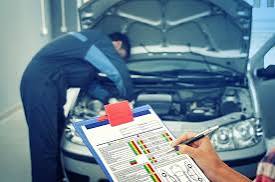5 Ways to Avoid a Car Breakdown in the Winter
Winter can be tough on your car, and breakdowns are more common during cold weather. However, with some simple steps, you can avoid being stranded in freezing temperatures. Here are five easy ways to keep your car running smoothly and prevent breakdowns in the winter. Winter can be tough on vehicles, but with the right precautions, you can avoid breakdowns and stay safe on the road. Here are five essential tips to help keep your car running smoothly during the colder months:
1. Check Your Battery
Cold weather weakens your car’s battery, making it harder to start the engine. Before winter hits, have your battery tested, clean the terminals, and replace it if it’s over three years old or shows signs of weakness.
Car batteries can struggle in cold weather, making it one of the most common reasons for winter breakdowns. Here’s what you can do to prevent it:
– Test your battery: Have your battery tested before winter starts to make sure it’s in good condition. Most auto shops offer this service for free.
– Clean the terminals: Dirt and corrosion can build up on battery terminals, reducing power. Clean them off with a brush or cloth to keep a good connection.
– Replace old batteries: If your battery is more than three years old, consider replacing it, as older batteries may not perform well in the cold.
2. Keep Your Tires in Good Condition
Good tires are essential for driving on icy or snowy roads. Make sure your tires have enough tread, check the pressure regularly, and consider switching to winter tires for better traction and safety. Tires need extra care during winter because they are your main connection to the road. Here’s how to keep them ready for winter driving:
– Check tire pressure: Cold weather can lower your tire pressure, so check it regularly and inflate your tires to the recommended levels.
– Inspect tread depth: Worn tires can’t grip icy or snowy roads properly. Make sure your tires have enough tread for safe driving, and replace them if necessary.
– Consider winter tires: If you live in an area with heavy snow or ice, winter tires can provide extra traction and help you avoid slipping.
3. Maintain Your Fluids
Cold temperatures can cause engine oil to thicken, so ensure you’re using oil suitable for winter conditions. Also, keep your antifreeze, windshield washer fluid, and other essential fluids at the right levels to prevent freezing. Your car relies on various fluids to function properly, especially in the winter. Make sure the following fluids are topped up and in good condition:
– Antifreeze (coolant): This helps prevent your engine from freezing. Check the antifreeze levels and ensure the right mix of water and coolant (usually 50/50).
– Oil: Cold weather can make engine oil thicker, which may cause problems when starting your car. Use the correct grade of oil for winter, which your owner’s manual will recommend.
– Windshield washer fluid: Use a washer fluid that won’t freeze in cold weather. This helps you keep your windshield clear of snow and ice while driving.
4. Inspect Your Brakes
Brakes are crucial in slippery conditions. Have them checked by a professional before winter, and listen for any strange noises like squealing or grinding, which could indicate problems. Brakes are crucial in winter driving, especially on slippery roads. Make sure your brakes are working properly by having them checked by a professional. Look out for:
– Strange noises: If your brakes make squealing or grinding sounds, get them inspected immediately.
– Slow response: If your brakes don’t feel as responsive as they should, it’s a sign that they need attention.
Winter conditions can make stopping more difficult, so you want your brakes in top shape.
5. Prepare for Emergencies
Carry a winter emergency kit in your car, including items like blankets, a flashlight, jumper cables, and an ice scraper. This will help you stay safe if you get stranded in cold weather. Even with proper maintenance, things can still go wrong. Preparing for a winter emergency will help keep you safe if your car breaks down. Here’s what to have on hand:
– Keep a winter emergency kit: Include items like blankets, a flashlight, a first-aid kit, and non-perishable snacks in case you get stranded.
– Carry jumper cables: Cold weather can drain your battery, so having jumper cables handy can save the day if your car won’t start.
– Keep a shovel and ice scraper: These tools can help you dig out your car if you get stuck in the snow or clear your windshield in icy conditions.
Conclusion
By following these simple tips, you can reduce the risk of a car breakdown and stay safe on the road all winter long. Winter breakdowns can be frustrating and dangerous, but they’re avoidable with the right preparation. By taking care of your battery, tires, fluids, and brakes, and being ready for emergencies, you can enjoy safer driving all winter long. A little preventive care goes a long way in keeping your car running smoothly and avoiding the hassle of a winter breakdown.




